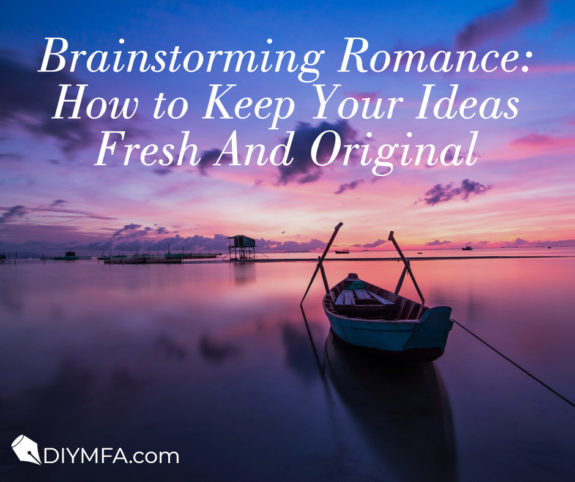It starts with an idea, or at least, an urge to write a love story. There’s a nugget, a kernel of inspiration. But how does that idea turn into a full-fledged romance novel with lovers, a first meet, love scenes, conflict, tension, breakups, and an HEA (happily-ever-after)? There are many ways to brainstorm a romance, and it’s not always easy. What’s even harder is making sure the story is something unique and different from what’s already out there.
Whether you’ve written many romance novels, it’s been a while, or you’ve never written one before, it can be hard to think of plot points that aren’t something romance readers have read a hundred times. Romance readers are some of the most high-volume consumers of books out there. They’ve read a lot of first kisses, I love yous, and HEAs. Getting your story to be different and unique takes much more than just the nugget of inspiration.
Here are some ways to make sure your romance writing is fresh and different from what’s been written before:
1) Read. Lots.
In order to write romance, a writer has to know what’s being published in the genre, and in her particular subgenre. Once you have an idea, or an inkling of the romance subgenre you’d like to write in, find authors writing those kinds of books, or at least writing something similar. Romance is such a diverse genre. Chances are if you’ve thought of it, something has been written like it. Even if you’ve been writing romance for a while, make sure you’ve read books published in the last year to remain up to date on the genre’s changes. Romance is adapting all the time.
2) Read book descriptions
I’m a slow reader, so reading a high volume of novels isn’t easy for me. I spend a lot of time reading the cover copy of books, otherwise known as the blurb or short synopsis. I read them constantly, by the dozens, both when I’m researching a new series and when I’m trying to stay up to date on my genre. I get basic ideas about what plots and tropes are in danger of being overused. The last thing I want is to write a whole book and find out the same premise was used by five other authors last year.
3) Read reviews
Listen to what romance reviewers are saying. They are the voice of the reader. They are the people who are the real avid consumers of romance novels. Most of them read more romance novels in a year than I could, even before I started writing. They are the ones who will be passing first judgement on your book when it releases. How a book does in reviews has a big impact on its sales. What reviewers are reading right now and liking and hating is very important to be aware of while plotting a novel. I follow lots of reviewers on Twitter. They’re always talking about it.
4) Watch movies and TV
Romance readers consume a lot of tv and movies, too. They often cry out for a romance novel like their new favorite movie or tv show or current event. (Case in point, the royal wedding.) This can provide ideas for what to write, but it can also help point out what not to write. If you seek to emulate something, make sure it’s different and not the same.
Given all those sources out there, it’s time for the WHAT IF?
What if I wrote this story? How would I make it different?
Once up to date on what’s published, don’t get discouraged if someone has “already written your idea.” There are always ways to make something fresh and new. Romance readers love seeing a tried-and-true trope done in a different way. Make the thing someone else wrote your own. The way you write it is not the same as how someone else would write it, because romance readers are always hungry for more. The perfect romance recipe is a framework of the familiar and a filling of the unexpected. Give them what they already know they love in a way that surprises them.

Robin Lovett is a romance writer of erotic sci-fi and dark thrillers. She’s published with Entangled Publishing and SMP Swerve. She loves to chat on Twitter @LovettRomance and every Sunday evening you can find her with other romance writers at #RWChat. She is represented by Rachel Brooks of BookEnds Literary Agency.







